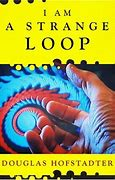On many fictional planets like Anderson's Ythri, as also on Earth, a species becomes conscious and later self-conscious. How? Life is local temporary negative entropy and consciousness is a by-product of natural selection. Sensitivity became sensation. I suggest that a mobile marine organism lacking sustenance began to feel hunger. Discomfort motivates action, starting with bodily movements and locomotion. Hunger motivates closing a mouth on something and either swallowing it or spitting it out. After internal feelings like hunger come sensations on the surface of the skin - too cold: approach heat; too hot: retreat. More complex brains replace mere sensations with perceptions of discrete objects like perceiving that the Sun is a source of heat, then, of course, thinking about heat.
On Ythri, warm-blooded animals evolved from amphibians, not from reptiles. Small gilled swamp dwellers climbed into trees where they developed a membrane for gliding. Then the membrane became wings while the gills became superchargers. Wings pump oxygen through superchargers into veins, empowering wings to lift bodies heavy enough for intelligence against terrestroid gravity. But before all this evolution, of course, marine ancestors of amphibians would have had to start feeling hunger, heat, cold etc. Buddhism reaches back to the earliest moment of consciousness: suffering; cause of suffering; end of suffering; way to the end of suffering. And that reminds us of Anderson's character, Adzel, the Wodenite who converts to Mahayana Buddhism.

3 comments:
Kaor, Paul!
Ythrians are still limited to planets with gravities humans would find light. Not sure if they could fly on Terra--and definitely not on Imhotep.
I think of "The Little Monster" as being where Anderson speculates about what the earliest true humans were like.
Ad astra! Sean
Though bear in mind that we didn't evolve modern-human style intelligence to deal with our physical environment; we probably did that to deal with each other, socially. For a social animal, that's just as crucial to reproductive success.
Self-consciousness lets you efficiently model other conscious beings. Humans do this compulsively -- in fact, they're so prone to it that they project consciousness on inanimate objects.
The fact that this helped with the physical environment was probably one of those 'unintended (sic)" by-products.
Kaor, Mr. Stirling!
I find that more convincing, humans are intelligent so they can better cope with one another.
Ad astra! Sean
Post a Comment